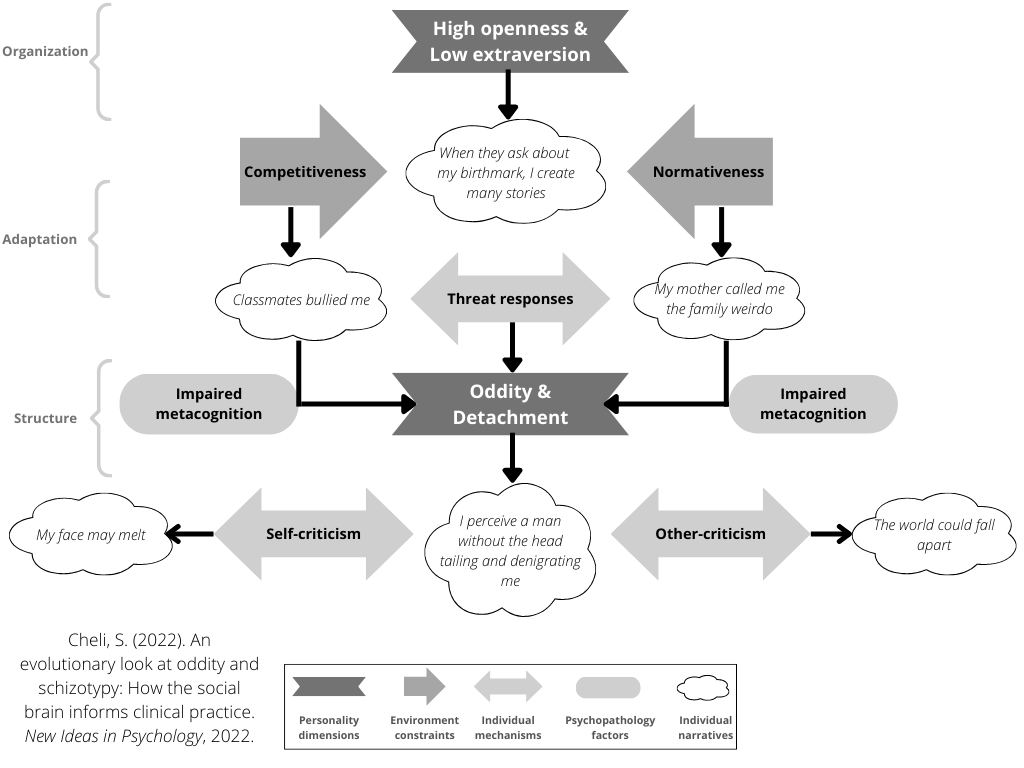For those interested in, here’s my presenation at Evolution 2023, the international congress on the theory of evolution. Martin Brüne and I have recently reviewed existing evolutionary studies on schizotypy and then summarized them for this speech!
Oddity, Schizotypy and Evolution?
My paper on an evolutionary model of schizotypy is finally out! New Ideas in Psychology has published it. As I anticipated in a previous post here, this study aims to summarize existing kowledge about proximate and evolutionary factors involved in schizotypy and oddity, and propose an integrative model.
Such a model suggests how schizotypy may be better understood by looking at the role of social brain in the evolution of our species and the neurodevelopment of those with prominents openness to experience and introversion.
The paper is also the foundation of the the shared conceptualization of newly developed treatment for schizotypal personality disoder, namely Evolutionary Systems Therapy for Schizotypy (ESTS). In the next few months the paper – figers crossed! – about a preliminary randomized controlled trial should be pulished.
Cheli, S. (2023). An evolutionary look at oddity and schizotypy: How the rise of social brain informs clinical practice, New Ideas in Psychology, 68, 10099, https://doi.org/10.1016/j.newideapsych.2022.100993
An evolutionary look at oddity
I’m extending the genetic background of my new paper on an evolutionary look at schizotypy. I have to thank the reviewers we asked me to improve this part of the research. The paper represents the theoretical foundation of my clinical work with those struggling with schizotypal psychopathology.
The idea at the core can be traced back to the long-standing debate about the evolutionary paradox of schizophrenia. In short, we know how schizophrenia hugely impact on quality of life, but it has always been present in our history. Or better we know how it is a very species-specific disoder. I was really surprised by discovering how those with high prevalence of Nehandertal genes were reporting a lower risk to been diagnosed with schizophrenia and if they were so they showed less severe symptoms!
In my paper I focus on schizotypy, that is a broad organization of personality that is reputed to range from healthy states (such as creativity) to severe manifestations such as schizophrenia. The hypothesis that I discuss in the submitted manuscript is that oddity (a core clinical manifestion of schizotypy defined by odd behaviors, emotions, thoughts) would represent the failure in socializing one’s own openess to experience. The latter trait is a healthy side of human personality allowing creativity and discovery, whereas oddity is a defensive stance often leading to emotional suffering and isolation.



